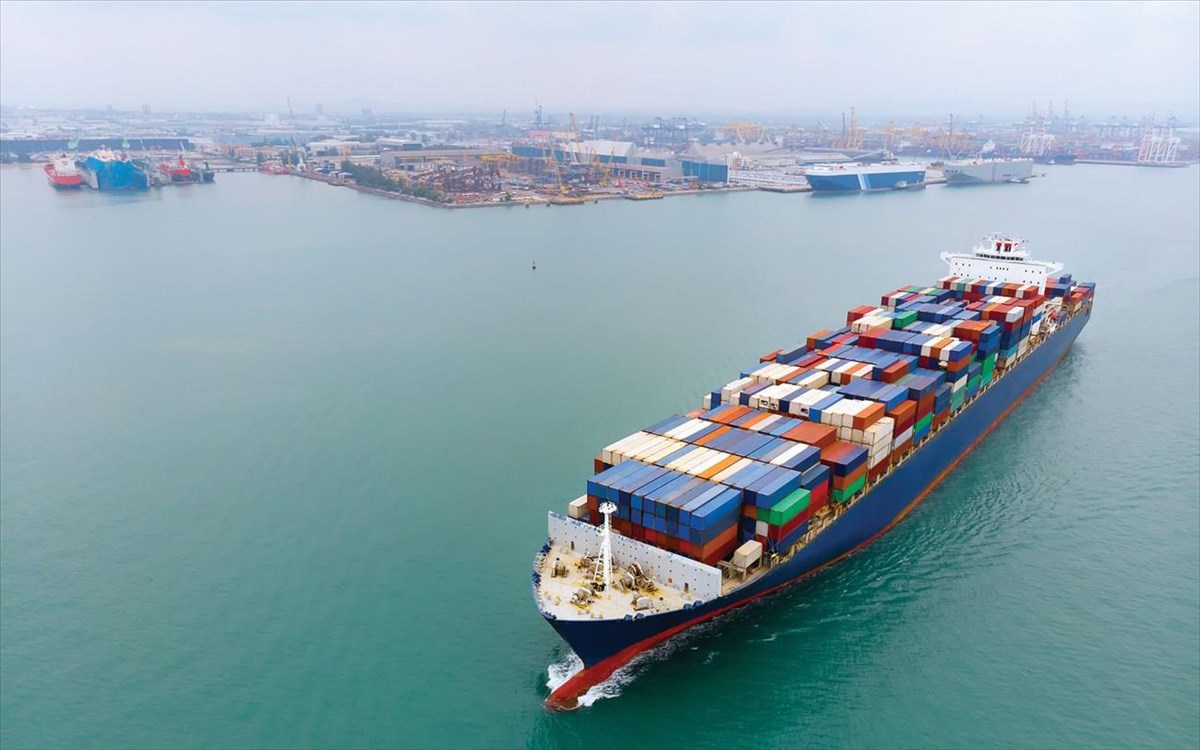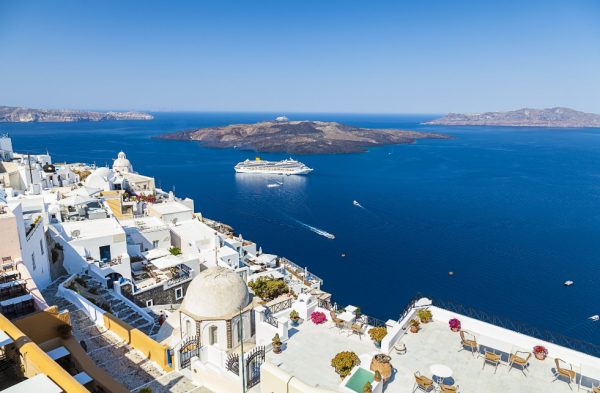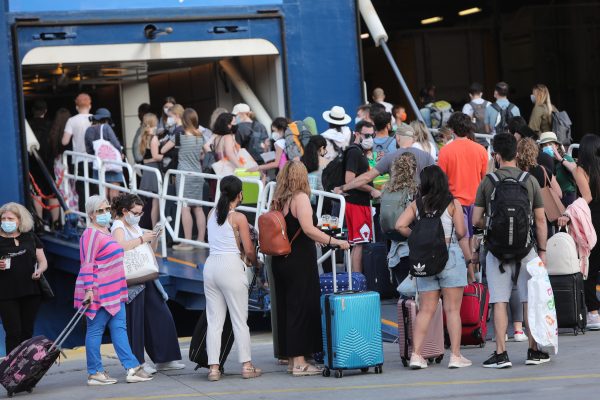
For shipping, 2021 could be characterized as the year of records, positive and negative, as in the three of the four main shipping sectors, fares, ship values, shares, “hit” new peaks, while in the fourth, tankers the fares “hit bottom” and in the ports the delays in the service of the ships also surpassed all previous ones.
Also, 2021 was a year in which shipping showed its irreplaceable role in serving world trade and in supplying the planet with goods, in a very difficult period due to the pandemic and the problems it brought. A role which in practice is often degraded by legislators and opinion makers.
In addition, the past year has been marked by the expansion of the debate on how shipping will get rid of coal, while technological initiatives for a more “green” shipping, with the use of more environmentally friendly fuels, such as liquefied natural gas (LNG) directly, and other alternatives in the long run.
In this context, the Greek shipping maintained its leading role in 2021, also recording its own records, such as the investments of approximately $ 16 billion, for the renewal of the merchant fleet. Of that, $ 9 billion is for investments in new orders for new ships and $ 6.8 billion for second-hand ship purchases. Greek shipowners invested more than any other nationality in second-hand ship purchases and were second only to the Chinese, who are also strengthening their shipbuilding industry, by investing in orders for new ships. Shipping also set a record for a decade as in the first ten months of 2021 the inflows from transport services according to the data of the Bank of Greece for the balance, reached 15,182.4 million euros and this is the highest level compared to the respective ten months. of the last decade.
The prospects for 2022
The crucial issue for the new year, as long as the pandemic lasts, remains the return of the supply chain to normalcy. Analysts estimate that port delays will continue to be a problem for most of the first half of the year, but could escalate if the pandemic does not subside.
At the same time, the outlook is positive for the four main shipping sectors (bulk dry cargo transport, container vessels, tankers and liquefied natural gas vessels).
Delays and increased demand combined with a shortage of ships will result in containers remaining at high levels. It is noted that in 2021 they surpassed all records. Typically on September 23, Drewry Analytics’s World Container Index recorded the highest average fare ever for a 40-foot (40 ft) Containers at $ 10,377.19, 323% higher than a year earlier, to be followed by a relative de-escalation to $ 9,500 a day. Also 2021 was the year that recorded daily fares at the level of $ 200,000 per day for container ships.
The outlook for 2022 is favorable for ship-owning companies with fleet of container vessels chartering to scheduled shipping companies, Alphaliner estimates, as demand is unlikely to weaken until next June, with shipments remaining high. on most routes.
In bulk cargo ships, dry cargo is expected in 2022, to be a very good year compared to 2021, during which fares recorded new highs. In particular, the key index of the bulk cargo freight market reached on October 7 the highest point for 2021 at 5,650 units and the largest ships, capesize, recorded an average daily fare of $ 86,953 that day, an increase of 60% compared to 2020 and adds that a small order book and the lack of tanks in shipyards for new shipbuilding by 2024 will limit fleet growth to levels below 2% creating a more favorable market for the coming years .
The sectors with satisfactory yields in 2021 and auspicious prospects for 2022 include liquefied natural gas transport vessels (LNG Carriers), where the spot market, in 2021, reached up to $ 424,000 / day, positively affecting long-term charters as well. LNG is considered by many as a transitional solution to reducing carbon emissions.
The tankers that disappointed with their performance in 2021 are expected to strengthen the market as the recession of the pandemic will lead to an increase in demand for oil, according to the freight forwarding company Xclusiv.
Environmental challenges
On the environmental front, 2022 is considered another crucial year as the finalization of the decisions on the course of divesting shipping from carbon is expected at the level of the International Maritime Organization. Shipping through its collective bodies is in favor of its exemption from fossil fuels until a reliable alternative is found by shipyards, engine manufacturers and fuel producers. It is also emphasized that shipping seeks international rather than regional solutions such as the European Commission’s proposal for industry involvement in the EU Emissions Trading Scheme, a development with which European shipping disagrees, arguing that the ETS is inconsistent with its global character. .
The international community instead of the participation of shipping in the pollution trading system proposes the creation of a fund (IMO Maritime Research Fund) of 5 billion. to finance research and development (R&D) of alternative fuels and technologies that will lead to the complete decoupling of the industry from coal by 2050.
In the same vein, the Hellenic Shipowners’ Association points out in its studies that carbonization requires a completely new generation of zero-carbon fuels and propulsion technologies that do not yet exist, the creation of which is the responsibility of fuel suppliers, shipyards and machine builders. therefore investments are needed in the direction of research and development of alternative fuels and technologies.
The proposal of the Greek Prime Minister Kyriakos Mitsotakis, to the President of the European Commission Ursula von der Leyen, for a European Research Center for Alternative Marine Fuels and Technologies is moving in this context. Without new marine fuels and related technologies, available worldwide, the decoupling of shipping from coal will not be possible within a specific timeframe, stresses the EU, which welcomes the proposal of the Greek Prime Minister.
Revival of seamanship
Finally, regarding the shipping of the Greeks, the maintenance of its leading position is a key goal for 2022, while a particular challenge it faces is the revival of seafaring in our country. The 4,800 Greek-owned ships that currently employ mainly foreign sailors can gradually form the basis of the rebirth of seafaring in our country, according to the Hellenic Shipowners’ Association and an information campaign of the new generation for professional career opportunities offered by the sea and maritime profession, entitled “a sea of opportunities” will be implemented during 2021 .
Latest News

Athens Int’l Airport Wins Top Prize at Routes Europe Awards
The Routes business is focused entirely on aviation route development and the company's portfolio includes events, media and online businesses

IOBE: Income Gap Between Poor and Wealthy Greeks Widens
The findings in the analysis, entitled “Progressivity in Income Taxation in Greece, 2012-2021", paint a bleak picture for Greeks in the bottom half of the income bracket, warning that income inequality is growing

Study Finds 4 in 10 Greeks to Slash Easter Spending
This year, hit by persistent inflation, many Greeks will be dishing out less on food, drink and gifts for Orthodox Easter on May 5

ELSTAT: Overnight Stays in Greece Up in Feb.
The provisional monthly data revealed that arrivals at tourist accommodations amounted to 773,104 and overnight stays were 1,677,685

Electric Energy: Greece’s New Sustainable Export
Moreover, a surplus of generated electricity cannot be fully absorbed by domestic grids and this excess power finds eager buyers in the form of companies entering into Power Purchase Agreements (PPAs), willing to pay a premium for clean energy

IOBE Revises Greek GDP Growth Downward, to 2.1% For 2024
Annual inflation is expected to reach 3%, up from the previous forecast of 2.8%

Last Sections of 136km E65 Highway Inaugurated on Tues.
Athens to Karditsa drive time is expected to drop to two and a half hours (under normal conditions), and some three hours from Athens to Trikala

Reuters: Greece to Repay More Bailout Loans Ahead of Maturity in 2023
The country has relied solely on international markets for its borrowing needs since a third institutional bailout ended in 2018

Ag Min. Avgenakis: Greece-China Cooperation in Research, Education in Agri-Food Sector
Greek minister tours cutting-edge hydroponics and robotics facilities at the Chinese Academy of Agricultural Sciences in Beijing

Mini Holiday Season in Greece for Upcoming Orthodox Easter
Occupancy rates reach up to 90% domestically for accommodations open ahead of peak summer season












































 Αριθμός Πιστοποίησης Μ.Η.Τ.232433
Αριθμός Πιστοποίησης Μ.Η.Τ.232433